⬇️Listen Now⬇️ |
| ⬆️Tap the above graphic⬆️ to listen to this episode in your favorite Podcasts App |
From Assistant Editor - both prior to joining Fear The Walking Dead and on the first few seasons - to quickly establishing himself as Editor, maintaining that position for the past several years, then finally directing his first episode (8x09, Sanctuary): we discuss Phil McLaughlin's journey, vantage points (as both editor and director) in the editing/film-making process, and new short film Toad Boy.
🛑STOP LISTENING TO THIS INTERVIEW and enjoy the PHIL CUT instead! With more than a half hour of uncut conversation, there are oodles of nuggets we simply COULD NOT include in the finished product. To get it, support our work by tipping us or joining a membership tier on either Ko-fi or Patreon to get your hands on it!
| Phil McLaughlin: | |
| David Cameo: | |
| Sherrandy Swift: | |
| Bridget Mason-Gray: |
- Phil McLaughlin started as Assistant Editor in Season 1 of Fear The Walking Dead; Co-Editor on episode 2x14, Wrath; stepped away in Season 3 until episode 3x07, The Unveiling, where he was Editor on a second unit (to cover demand); became full-time Editor from Season 4 until the end of the final season (Season 8); he finally became a Director, for the first time, in this week's episode - 8x09 Sanctuary.
- Phil mentions that the show has a collaborative and supportive crew, allowing for opportunities to take chances and improve. The show experimented with different things in seasons four and five, such as using Althea Szewczyk-Przygocki's camera (effects), and exploring Grace Mukherjee's dream sequence in 6x12, In Dreams.
- Phil enjoys being able to be creative and tell stories in his role as Editor. While there is input and direction from showrunners (Ian Goldberg & Andrew Chambliss) and directors (most notably Michael Satrazemis & Heather Cappiello), he also has the opportunity to contribute his own creative input via the Editor's booth. While the visual language of the show is overseen by Michael Satrazemis, who brings continuity to the production, an Editor serves as a bridge between Director and Producer, aiming to make the best version of an episode with the filming material available to them. Even when the show evolved into a more character-focused, anthology-style format (during the pandemic), there was the need for constant turnover in light of shorter production schedules. An Editor's role involves elevating footage and employing creative problem-solving to translate different directorial choices into the show's language.
- The show encourages opportunities for crew members and cast to take on new roles, like Phil's journey from Assistant Editor, to Editor, to Director. Cast/Crew members interested in directing will shadow and learn from experienced Directors before getting the opportunity to Direct themselves.
- Each director may have a slightly different style, but the editor maintains a fairly consistent approach to the material given to them - with few exceptions, such as when there's strong working relationship with a particular Director. The Director communicates with the production team through notes via the Script Supervisor. Editors review the notes and footage to construct and sculpt each scene. They stay close to the production team and make refinements after the shooting is completed. They work on stringing scenes together, building transitions, and even adding temporary sound design and score. The editing process involves experimenting, trying out different visual effects, and refining each sequence to extract the most impact.
- The editor's cut is a chance to receive feedback and make improvements, continuously refining and improving a given episode. The editing process takes about 14 days, followed by a week's worth of collaboration with the Director and Producers, then eventually AMC reviews and provides feedback, which takes another 4 days to a week. Reshoots are rarely needed, but sometimes pickups or additional shots are needed to enhance certain story beats.
- Getting a chance to see how things are outside the booth as Director, time management on set was a challenge because things move quickly. Shooting episodes with background actors, who often require heavy (zombie) makeup and costuming, can be time-consuming. Even shooting a scene in the opposite direction can take half-hour to an hour. If you don't get what you want in the time allotted, you are often faced with the possibility of having to nix shots off your list. A perfect example of this: the collapse sequence in Sanctuary was initially scheduled for half a day, but ended up being more complex. Strategically scheduling certain shots for the back end of the day helps to prioritize essential story pieces you absolutely need to get on the front end. A Director also has to communicate with different departments and, hopefully, they've prepped enough to anticipate their questions ahead of time. Being able to answer questions and provide ample information allows them to shoot more of the footage they desire.
- When Phil edited for Michael Satrazemis for the first time, it helped him lock into the vision of where Fear TWD was heading. One of the perfect examples of this - his favorite episodes to cut - 4x05, Laura, and 5x05, The End of Everything, were not only successful in telling character arcs, but also influenced the shift in storytelling in latter seasons. Episode 6x15, U.S.S. Pennsylvania, featuring Theodore "Teddy" Maddox was also a fun one to work on.
- Speaking of creative and fun episodes to work on, cutting episodes 7x01, The Beacon, and 7x02, Six Hours - the Will & Victor Strand and Grace & Morgan Jones episodes, respectively (though not shot in order) - were also highly enjoyable. Fun fact, Phil's daughter provided the voice for the baby walker stuffed in the satchel during the latter episode. It consisted of recording her mimicking walker sounds: her breathing was labored, due to her contracting RSV. He tried to show Lennie James what he was working on for the baby voice, but he was already traumatized enough from this harrowing episode.
- What helped Phil tackle Sanctuary, an episode that is steeped in lore from The Walking Dead, was having previously edited episode 8x02, Blue Jay, which featured the same characters: June Dorie, Dwight, and Sherry. To illustrate the amount of care and thought that went into this monumental episode, the pre-production team curated a list of essential episodes from the original series for the cast/crew to watch and (re)familiarize themselves with that era and its aesthetic. Many producers and crew members from the original series were involved in the production of this episode, too, and original props/set pieces from The Sanctuary were brought in, including the windows in the main room. Everyone wanted to make sure they did justice to TWD fans, while also finding opportunities to make the episode rich and meaningful to FearTWD.
- Sherrandy couldn't get enough of the opening shot of Dwight's reflection in a puddle as lightning struck. It gave Phil the opportunity to explain how the original script called for Dwight's journey into despair to be longer, but they took shortcuts, such as the aforementioned sequence, in order to quickly align the audience with him. It was also a cool way to introduce the episode and tease the setting of being back at Dwight and Sherry's home. To accomplish that shot, they used a massive lighting setup high atop the tress during a night shoot. There was a lot of prep work involved in even finding shooting locations, especially the exterior of the Dwight & Sherry house.
- Given how much pressure there was to get this episode right, Phil received an earlier draft of the script and had extensive conversations with the writers. This allowed them to sacrifice many sequences early on: for episode length and to better meet their production schedule, but also to allow them to keep key action sequences and scenes with memorable set pieces. These early conversations also influenced the way things were going to be shot ahead of time, with enough time to recontextualize it in FearTWD's storytelling language. All of this made it so that the production team were able to shoot everything they wanted to, without leaving any doubt or regret about what they couldn't shoot.
- Dave remarks on their ability to get us into Dwight's headspace in such a short amount of time, but also the way the weight of his sadness is handed off to each character throughout the episode's progression, crescendoing in Jayla Walton's performance (as Odessa "Dove" Sanderson) in the latter half of the episode. Phil relinquishes any responsibility for the way every actor brought their A-Game: his only role was making them look good and finding authentic performances. The job of both Director & Editor is focused on capturing and refining honest and real moments. Specific scenes and characters stood out for Phil, such as Jayla and Jenna Elfman's intense scene, which showcased Jayla's growth as an actor.
- It was also really important for Phil to capture the unique perspective of each character and how they deal with their personal/shared trauma, like not losing the thread on the tremendous loss of Dwight and Sherry's child, Finch, and how it continues to affect them. Even the way Dove rejects her guardians (Blue Jay, Red Kite, and Starling) is a way to step into (or at least shift) the audience perspective by telling the adults to just get over it.
- Sherrandy takes a moment to thank Phil for donating a six-pack (minus the actual beer) of 3 Floyds Zombie Dust to our TWDU Trivia Charity Battle. She bid and won that prize, which also contained the signatures (and now we know why) of Jayla, Jenna, Austin Amelio, Christine Evangelista, and Phil, himself. It may have taken him a while to get it out to her, but he made it worth her while! But Phil also thanked all of us for not only the wonderful messages her received in praise of this episode, but also for SQUAWKING DEAD's dedication to and coverage of The Walking Dead Universe (but FearTWD in particular), even when we've been critical of certain choices, but more often see the value and appreciate what they are trying to accomplish. We thank he and the cast and crew who have been very generous with the fans on social media, to which he credits as the value of working with people who are considerate and caring: a testament to the show's longevity.
- Sherrandy asks whether he will be or wants to work on any TWDU series in the future. Phil is definitely open to it! He mentions how he's already edited episode 1x05, Davon, of Tales of The Walking Dead. Phil made many friends on the other shows, since they were all working in the same building, and still keeps in touch with some editors.
- Dave asks Phil what the biggest takeaway was throughout his time on Fear The Walking Dead. Phil unequivocally states it was the quality of leading with gratitude and empowering others, which is incredibly important in creative and collaborative endeavors. It is super important to embrace the creativity and storytelling abilities of everyone involved throughout the production process. It's easy to become bogged-down with problems, so being a decent, approachable, and honest person is highly beneficial in order to focus on finding solutions and becoming successful in this industry, in general. Phil also expresses pride and inspiration in seeing former Assistant Editors evolve and take on challenges as Editors, which we got to see in both Sanctuary and upcoming episodes.
- And as far as what he wants the audience to walk away with as the series comes to a close: The goal of Fear of The Walking Dead is to put characters into extreme circumstances, see how they react, and how it affects their relationships and worldview. Find the way in which you can relate to these characters while latching onto qualities that are aspirational. The hope is that viewers will be drawn into the story and feel engaged, even if some dislike it, overall. An Editor's goal is to be as compelling as possible, while remaining invisible, to get the audience to invest in the story and characters: they pull people into the story by directing their eyeline in order to provide the necessary visual information to better digest and understand key moments.
- We shift our focus from FearTWD and onto Phil's short film, Toad Boy, which is about two siblings showcasing the lengths they will go for one another, with the older sister making a significant sacrifice for her younger brother. On a more personal note, it explores the terrifying nature of children and the helplessness of their parents.
- Along with including cool practical makeup effects, Phil wanted to establish vague nostalgic vibe (in that special way that only a midwest setting can provide), giving the audience an initial sense of being out of time and unclear of the setting. An perfect example of this is how the suburban Indiana middle school appears that it hasn't been updated since the 1980s. In the process, he wanted the audience to go on a journey that feels unexpected and wind up somewhere completely different from where the story started.
- Toad Boy was Phil's effort to prove his directing abilities and potentially get work on larger projects. The dark humor is subtle and there's even moments of self-awareness within the film. Bridget notes the slight nod to the Evil Dead franchise, by way of the Necromagica. Just imagine a a non-verbal kid - who is bullied prior to the events of this film - who suddenly finds himself with access to incredibly powerful dark magic.
- Phil also wanted to also play around with the boundaries of morality, but moreover loved that it was a chance at unexpected storytelling with unexpected antagonists. As a fan of the horror genre, he wanted wanted to focus on the body horror component. He also aimed to create a unique and organic tone, while leveraging sound design and deliberately paced visuals to elevate key scenes.
- Tamir Tucker, who played Todd Owens, fully embraced his character and even wanted to keep the mask and instrument by the end of production.
- Though bullying is a theme that's present in the film, it was merely a shortcut to establish character perspectives and hook the audience in a short amount of time. It allowed him to focus on building, bit-by-bit, the revenge theme and rapidly erasing sense of morality. Dave comments on its cleverness: bullying is understood to be normal, but perhaps it shouldn't be.
- The film has received positive feedback and reviews on platforms like Letterboxd. It was available on the FilmQuest virtual program via the EO (Entertainment Oxygen) app and will be screened at upcoming festivals, like Abertoir International Horror Film Festival of Wales - Short Film Competition), Soho Horror Film Festival in England, and New York City Horror Film Festival. It should eventually be available for streaming after all festival runs are completed. Follow @shorrorts and keep checking toadboyfilm.com for further updates! Though Toad Boy has given Phil the opportunity to network with many people along its festival run, getting to direct Fear The Walking Dead, as a result of making it, was his biggest reward. Still, it has sprouted a life beyond its initial intention and people continue to respond to it. The makeup effects for Toad Boy was featured in Dark Matter magazine, for which Phil is Director of Media and Contributing Editor, and the artist has also been nominated for makeup effects awards.
- But Phil continues to learn a lot about Directing and Film-making as a result of making Toad Boy. The initial cut of the film was longer, but it was edited down to be more concise. It allowed him to better consider the economy of shots during filming, so time wasn't needlessly wasted. Sherrandy asks whether he plans on releasing The Phil Cut, but Phil shudders at the thought, calling it masturbatory - certain scenes, to him, were questionably long. Speaking of needlessly long versions of recordings, it behooves us to mention, again, that this uncut conversation can be streamed on Ko-fi & Patreon, with your support!
- Speaking of, we cut a part of our conversation where Phil's son needed cough medicine and, before we were getting ready to wrap our interview, we wished him a speedy recovery. After reassuring us that he was going to be fine, he was reminded of a pair of creepy videos he did announcing the pregnancies of both his youngest children, containing cult masks and chanting Mother Goose in Latin:
- He also mentions that his oldest son is interested in horror movies. Thanks to his role as an editor, his son has a healthy sense of the difference between fantasy and reality. Even further, he's taken an interest in seeing how these movies and shows are made. One particular scene his son got to observe was of the walker trapped in the shopping cart on FearTWD 7x02 where, between takes, the actor was given shade with a very colorful rainbow umbrella. He's also got to see walkers in casual settings, smoking cigarettes, eating sandwiches, and even riding skateboards.
- Phil pauses: even though AMC's communications team tends to spoil their own shows, he hopes he hasn't said anything that might get him in trouble. For instance: the behind-the-scenes featurette discussing the construction of The Sanctuary, he was concerned the public wasn't supposed to know. We quickly alleviated his concern: they happened to mention it was a recreation. But spoiling your own show isn't limited to AMC: Phil mentioned that networks, these days, often spoil upcoming episodes or plot points in promos, possibly due to a lack of patience in present-day, binge-watching audience culture. We've even noticed that shift in TWDU, with production teams not timing their emotional beats in consideration for commercial breaks to suit a binge-watching audience that will stream it all in the aftermath, rather than week-to-week.
- Phil, leading with gratitude, also wanted to mention that next week's episode was directed by Stunt Coordinator, James Armstrong III, in which he cut one of the best sequences in his time as Editor. Speaking of gratitude, he is grateful that he got to direct the episode prior to James because it was just that good. Dave is super pleased to hear that because it reflects his desire for Fear The Walking Dead to take chances, bring in exciting and fresh ideas, and introduce some wild perspectives in order to close the series with a proper bang.
⭐⭐🌟Like What We Do? Buy Us a Coffee!🌟⭐⭐

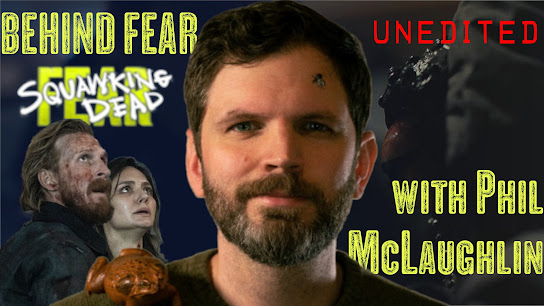










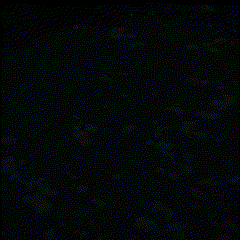




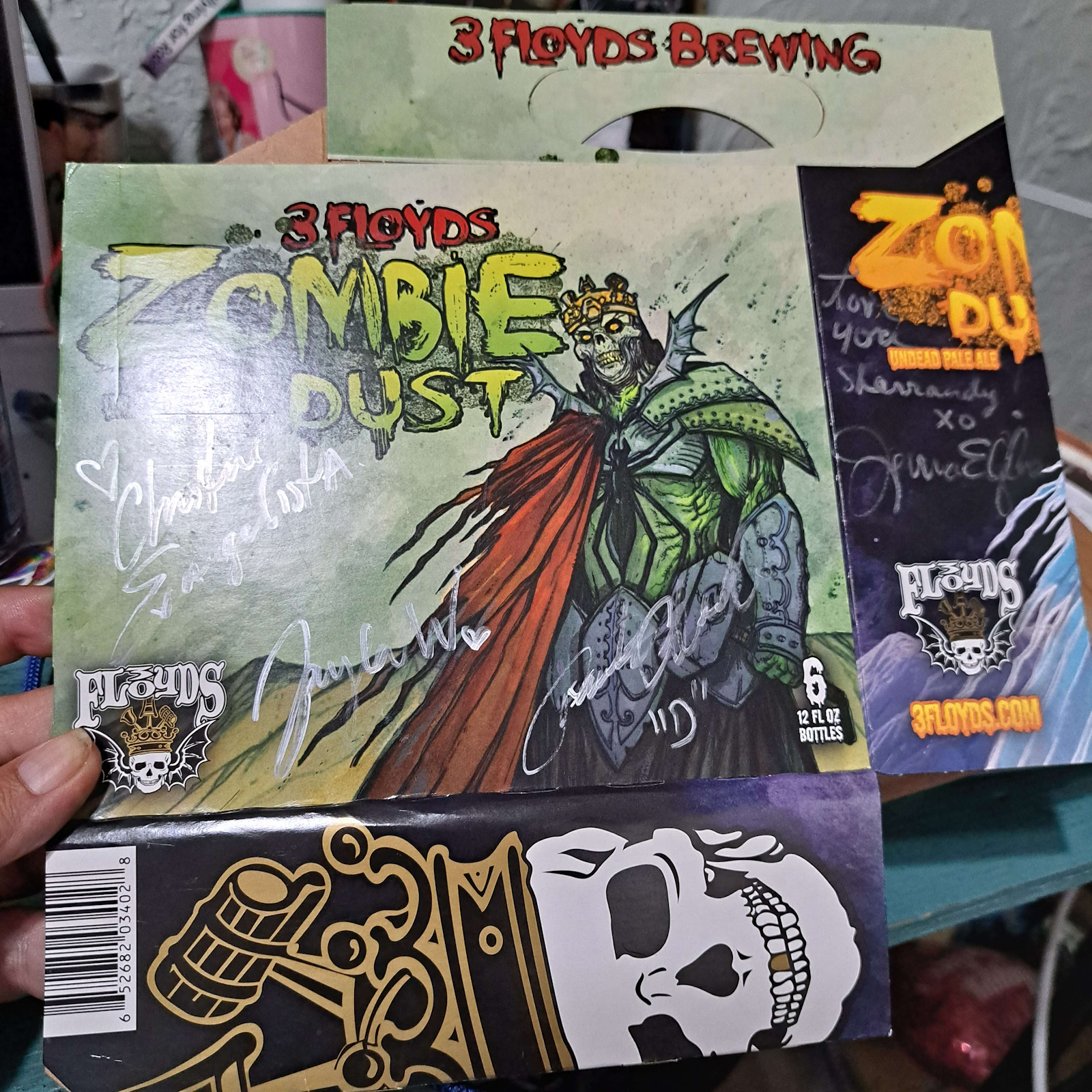



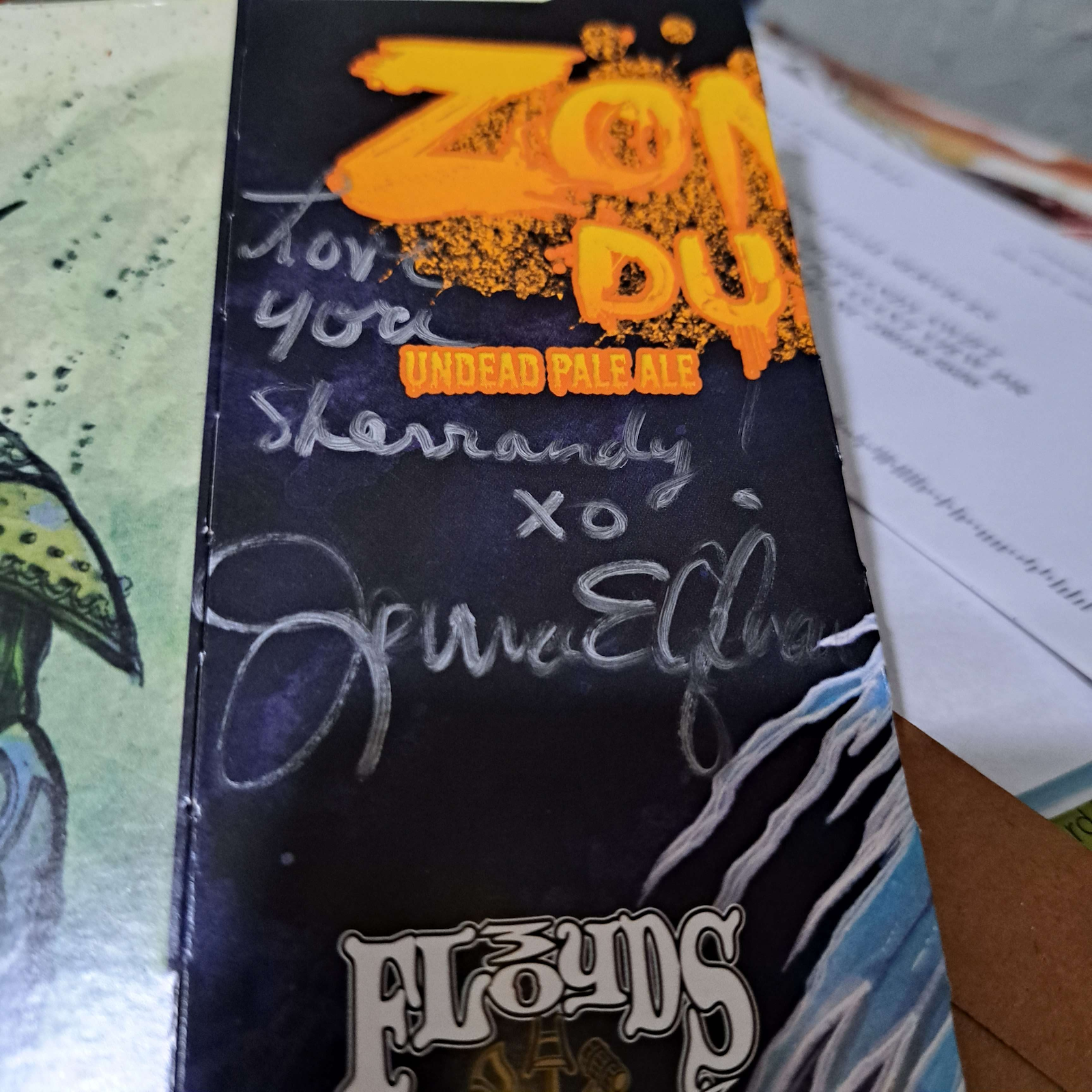


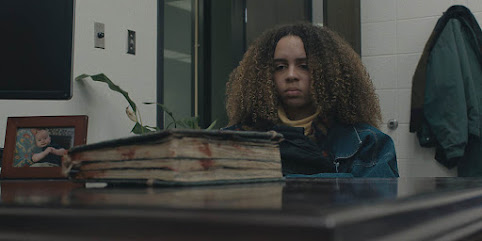


No comments:
Post a Comment